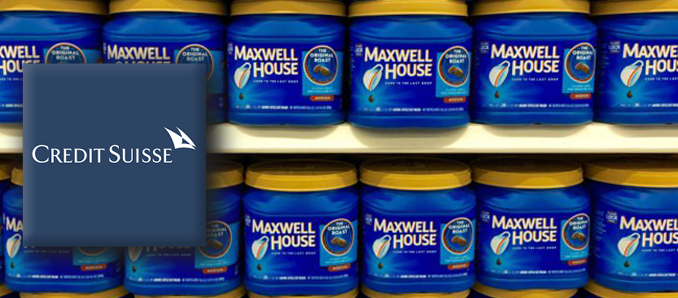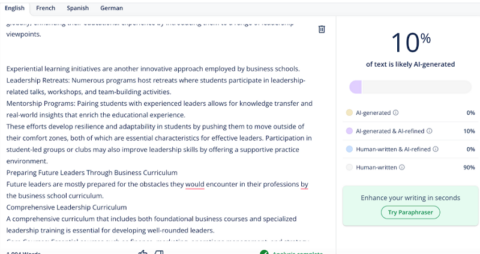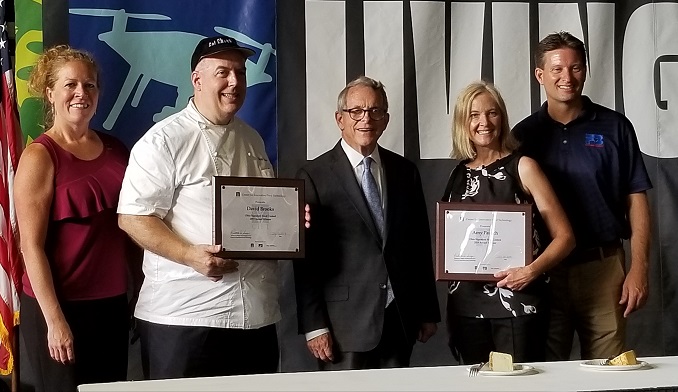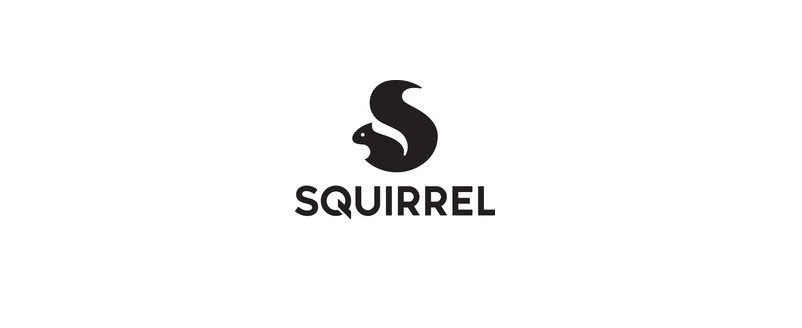 Kraft Heinz, the ailing food giant, has tapped investment bank Credit Suisse to review options for its Maxwell House coffee business, which could include a potential sale, people familiar with the matter tell CNBC.
Kraft Heinz, the ailing food giant, has tapped investment bank Credit Suisse to review options for its Maxwell House coffee business, which could include a potential sale, people familiar with the matter tell CNBC.
The coffee business has roughly $400 million in earnings before interest, taxes, depreciation and amortization, the people said.
Based off valuations for other sales of consumer brands, a sale could fetch a price of at least $3 billion, they said, though cautioning its price would depend on buyer interest. The coffee industry has become more challenging in the past few years, but private equity firms have shown interest in buying some large, tired brands. Private equity firm KKR last year paid roughly $8 billion for Unilever’s I Can’t Believe It’s Not Butter and other spreads business.
The sale of the coffee business will be one of a string of divestitures for Kraft Heinz, the people said, as it looks to deconstruct the empire put together by its private equity backer 3G Capital.
3G Capital, which bought H.J. Heinz along with Berkshire Hathaway in 2013 and merged it with Kraft two years later, has made its name in splashy acquisitions of U.S. consumer companies. It put together Restaurant Brands International, owner of Burger King, Tim Hortons and Popeyes and created beer giant Anheuser-Busch Inbev. But trends have changed since 3G Capital first pounced on the U.S. scene. Bigger is not better, as large brands fend off competition from leaner, innovative rivals.
It is a struggle to ignite growth when a company is saddled with large, off-trend labels like Oscar Mayer and Velveeta, while facing rising costs. Those challenges have been exacerbated by 3G Capital’s cut-to-the bone approach to costs, which some analysts say has come at the sacrifice of its brands’ health.
Kraft Heinz last week delivered fourth-quarter earnings and revenue that were sharply lower than estimate s. Even worse, it slashed its dividend by 36 percent and took a $15 billion write-down on two of its biggest brands, Kraft and Oscar Mayer — an acknowledgement the brands no longer entice shoppers.
As it delivered the bad news, Kraft Heinz executives told investors last week to expect more divestitures going forward to wipe debt off the its balance sheet. Kraft Heinz last year sold it Canadian dairy business and its Indian beverage business Complan. It said last week it is looking selling brands “with no clear path to competitive advantage.”
Good to the last drop
Maxwell House, once the country’s leading national brand, for years had mainly Folgers to contend with in the fight for space in Americans’ cupboards. For decades, it was enough to rely on its sponsored TV placements and its reminder that its coffee was “good to the last drop.” It was one of the first mainstream products to target Jewish shoppers, making it what the New York Times once called “the pioneer” of multicultural marketing.
But coffee culture has changed as Americans shift from homemade brew to splurging on a premium priced java grabbed on the go at omnipresent cafes. There is an ongoing coffee war between Starbucks and European investment firm JAB Holding, owner of Keurig Doctor Pepper, Krispy Kreme Doughnuts and Peet’s Coffee & Tea. Both aim to take advantage of the reach this affords, leaving for less room for mainstream, largely drip-coffee brands like Maxwell House.
Kraft Heinz has sought to modernize its coffee business, offering on-the-go “iced coffee antioxidant max drinks” and blends with customizeable caffeine levels. It also bought fair trade brand Ethical Bean Coffee last year.
Rival Folgers has also felt the squeeze. Its owner J.M. Smucker this past quarter reported a 1 percent drop in its coffee net sales, compared to the same quarter a year ago. Smucker, which also sells Dunkin’ Donuts coffee in grocery stores, scooped up the coffee brand in 2008 when Procter & Gamble put it up for sale. Last year, however, Smucker bought pet food company Ainsworth Pet Nutrition for a little under $2 billion to move further beyond its coffee business.
Against that backdrop, it is unclear which buyers will come forward for Kraft Heinz’s coffee business.
No stone unturned
The same uncertainty goes for other brands Kraft Heinz is expected to pluck from its portfolio.
Mood at the company, which saw its shares plummet nearly 30 percent on Friday, is dour, say people familiar. It is taking a no stone unturned approach to which brands it should or could unload, they say.
Speculation across Wall Street abounds. Bankers have wondered whether Kraft Heinz’s Planters nuts, Oscar Mayer meat or its frozen food business, could be one of the next potential brand it sheds. They cautioned decisions are still being made, and it is possible Kraft Heinz sells none of those units.
Analysts have noted that any divestiture will come under the cloud of the company having just written down it biggest brands by $15 billion.
Slimming down, according Kraft Heinz CEO Bernardo Hees, will give the company “a balance sheet that’s more flexible and more prepared for future consolidation.” Investors have been eagerly awaiting a large-scale deal since Unilever rebuffed its approach two years ago. Some analysts have expressed concern that 3G’s cost-cutting model only works when deals give it more fat to cut.
But others note that slimming down, along with its $15 billion write-down, could pave the way for Kraft Heinz to go private. Life in the public spotlight has been challenging for all Big Food companies, from Kellogg to General Mills, which are trying to rework portfolios full off off-trend foods. Campbell Soup, once seen as an obvious dance partner for Kraft Heinz, suffered its own public fall from grace, before also committing to shedding much of its packaged food empire.
Right now, though, the spotlight has been on the Jello-owner, which saw more than $16 billion of its market value erased in a day.
The people declined to be named because the information is confidential.
A spokeswoman for Credit Suisse declined to comment, while a spokesman for Kraft Heinz told CNBC, “Kraft Heinz will not comment on rumors or speculation but we will look at divestitures where there is no clear path to competitive advantage. This in turn will improve our portfolio’s growth and margin trajectory.”








